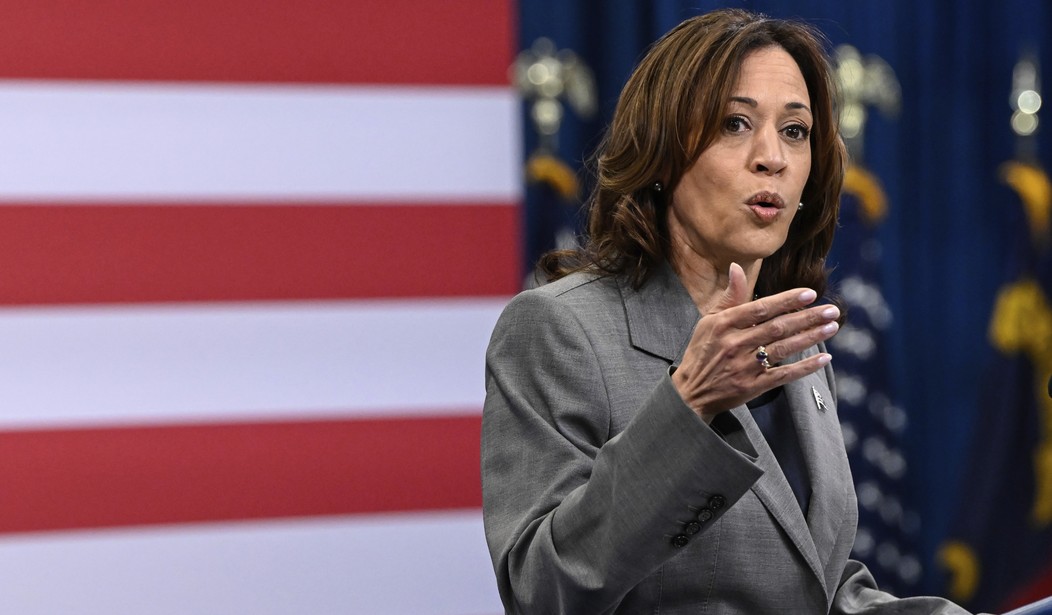According to two recent overnight polls, Kamala Harris' popularity as a presidential candidate plunged with Hispanic voters compared to Democratic candidates in recent years. A Forbes / HarrisX survey has put Harris tied at 39 percent with former President Donald Trump. The Friday, July 19 through Sunday, July 21 poll was conducted prior to Biden's withdrawal from the race, making Harris still a prospective candidate in the survey of 2,753 registered voters, with a margin of error of 1.9 points.
The record-low favorability among Hispanics is reflected in a second poll from Quinnipiac University, which also places Harris at 39 percent support. The poll was also conducted from July 19 through July 21 with 1,257 self-identified registered voters nationwide, with a margin of error of 2.8 percentage points. Among them, 542 were Democratic and Democratic-leaning voters, with a margin of error of 4.2 percentage points.
🚨NEW POLL🚨
— Giancarlo Sopo (@GiancarloSopo) July 22, 2024
BREAKING: Another overnight poll, this time from Quinnipiac, shows Trump and Harris TIED among Hispanics at 39%.
Context: This would be the worst performance ever for Democrats with Hispanics, even lower than John Kerry's record low of 53% in 2004. https://t.co/zTxFDd0YHS pic.twitter.com/bK924K8OWf
Related: 'The Voters Don't Like Her': Arizona Focus Groups Offer 'Brutal' Assessments of Kamala Harris
In March, a New York Times poll had Trump beating Biden among Hispanic voters 46 to 40. In 2020, Joe Biden received 66 percent support of the Hispanic vote in national exit polls, a figure comparable to Hillary Clinton's 65 percent in 2016. In contrast, the recent survey showed Kamala Harris trailing Biden's 2020 national numbers with Hispanic voters by 27 points.
If Harris crosses the finish line with just 39 percent of the vote, it would mark the lowest level of Latino support for a Democratic presidential candidate in recorded history. This comes at a pivotal time when the influence of Hispanics is increasingly decisive.
According to the Pew Research Center, approximately 34.5 million Hispanic Americans will be eligible to vote in the 2024 election, cementing their status as "the fastest-growing racial and ethnic group in the U.S. electorate since the last midterm elections." States that could see increases in Latino turnout in 2024 versus 2020 are California, by 6.1 percent; Florida, 13.8 percent; Nevada, 15.5 percent; and New York, 12.4 percent. The turnout rates in Arizona, Georgia, New Jersey, and Texas will likely be similar to those in 2020.
Among the swing states, Trump is leading in heavily Hispanic-populated Nevada and Arizona, two states he did not carry in 2020. Although Biden won the electoral votes in 2020, he experienced a 4-point drop in Nevada, where Latino men showed notable support for Trump. In the Silver State, Biden won 56 percent of the Hispanic vote, and Trump won 37 percent, with Hispanics accounting for 19 percent of the ballots cast overall.
In a survey conducted just before Biden's disastrous debate performance and the attempted assassination of Trump, nearly a third of the Hispanic electorate in Nevada was undecided between the two candidates. A poll conducted by TelevisaUnivision from June 12 to June 24 revealed that 33 percent of Latino registered voters were in support of Biden, while 30 percent supported Trump—a statistical dead heat given the margin of error of plus or minus 5.1 percent.
The poll indicated that 17 percent of Latinos would "probably" vote for Biden, while 10 percent expressed a similar inclination towards Trump. Additionally, seven percent stated they would vote for another candidate, and four percent remained unsure or undecided about their voting preference. This leaves 31 percent of Latino voters in Nevada up for grabs between the then-proposed major party candidates.
Harris' unfavorability with Hispanic voters, as recent polls show her tied with the former Republican president, signals a notable decline in support compared to previous Democrat candidates. Looking ahead, Hispanic voter turnout in swing states will be crucial, reflecting their growing influence and the potential for a significant and lasting realignment in electoral demographics.













Join the conversation as a VIP Member